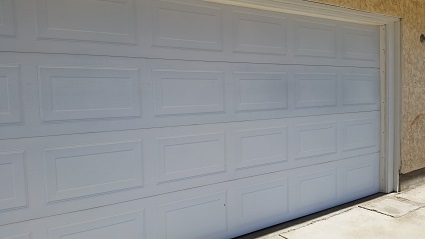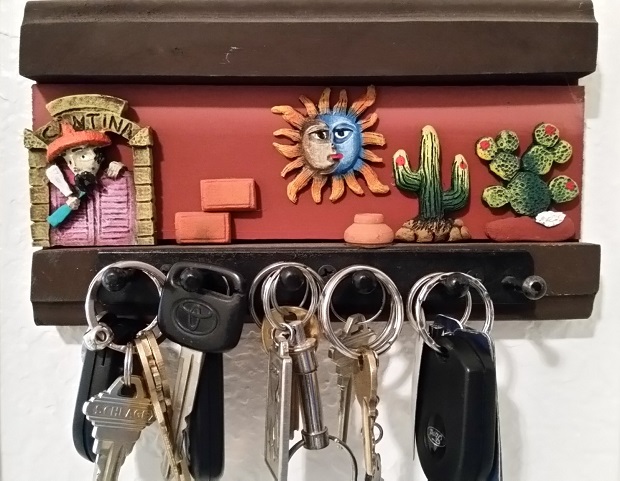A couple months ago, we featured a guest post, Want to Remember? Break Your Routine. The idea was to keep our minds agile and fresh by doing things differently. As I get older and my mind fills with more things, I realize it’s better to have certain parts of my life running on autopilot.
For instance, a quick Google search for “average time spent looking for keys,” yields astounding results. One study reports that we spend about 153 days of our lives looking for things. YIKES!
The items we lose most frequently are remote controls, keys, wallet and phone. One study estimates we spend ten minutes a day looking for keys. Multiply that by about 250 workdays a year and that’s almost 42 hours a year. That’s a week’s vacation time! UNBELIEVABLE!
How often do you misplace your keys?
I’ve seen it in my own home. My hubby spent 5 to 15 frustrating minutes once or twice a week looking for his keys. He’d forget where he placed his wallet about twice a month. It took him years to finally apply a system that worked. Thanks to a gift from our friends from Mexico, our keys are now kept on one of six key hooks. Hubby uses the two on the right (one hook is empty because I took the picture while he was at work). I use the two hooks on the left. The two in the middle we use less often. It’s become such a habit now, I don’t even turn on the lights when reaching for my keys. And he has only misplaced his keys twice since we began this system several years ago. We also have a system for his wallet and my purse.
When life gets too hectic it’s best to go on autopilot.
If you park your car in the garage, how often do you drive away and then wonder, “Did I remember to close the garage door?”
 Many of us have been rescued by a kind-hearted neighbor. After getting a call that we left the garage door open, they’ve even gone in to close the door and run out before getting squished.
Many of us have been rescued by a kind-hearted neighbor. After getting a call that we left the garage door open, they’ve even gone in to close the door and run out before getting squished.
To remember, I press the remote to close the garage door while backing out of the garage. This practice – get out before the garage closes down onto the hood or front bumper – keeps my attention focused on what I’m doing. It’s a bit riskier form of autopilot. As a result, I am confident knowing the door was closed.
While it’s good to mix things up as Christina Chartrand, VP of Training at Senior Helpers argues for helping the mind remember, it’s also good to establish routines that run on autopilot.
When life gets hectic it’s hard to keep track especially while caregiving. Add to this, children who still live at home and the demands of an outside job. You definitely need an edge.
As I get older, these practices will become more ingrained as muscle memory and I won’t have to think about them as much.
Autopilot can be very useful when we’re not thinking, we’re stressed or in a hurry, or for people living with a diagnosis of dementia.









